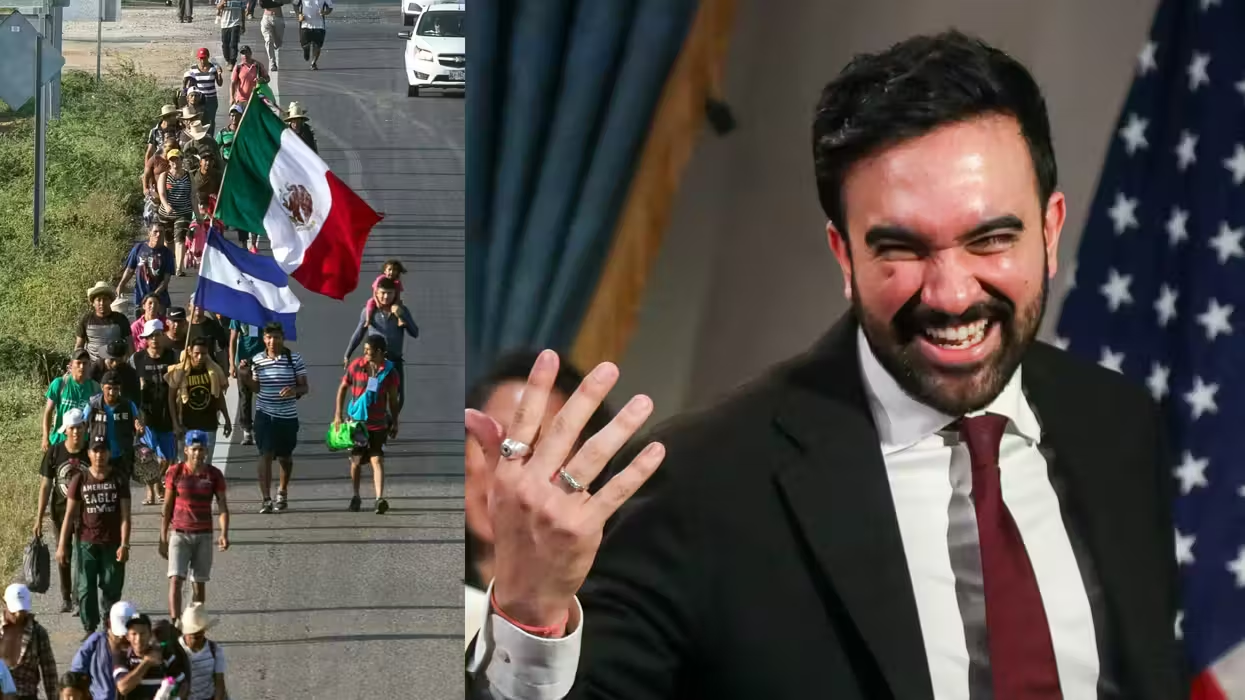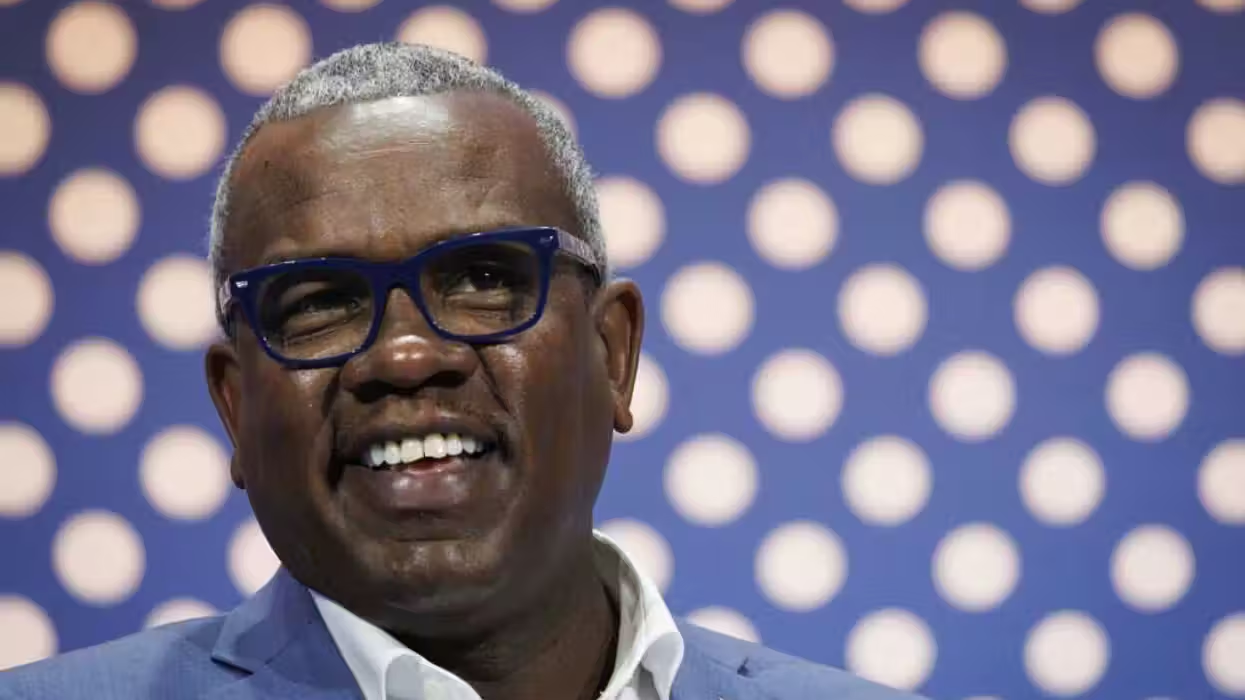
© 2026 Blaze Media LLC. All rights reserved.
Here Are More Signals the Muslim Brotherhood Will Govern Through Shariah in Egypt & Tunisia
February 23, 2012
"Using Islamic shariah as a principle source of legislation will guarantee freedom, justice, social equality..."
 Concerns over the Muslim Brotherhood and the power it has garnered in Egypt and Tunisia have run rampant over the past few months. But to temper fears, the Islamist group has spent months pledging to temper its plans to govern harshly on the basis of Islamic law.
Concerns over the Muslim Brotherhood and the power it has garnered in Egypt and Tunisia have run rampant over the past few months. But to temper fears, the Islamist group has spent months pledging to temper its plans to govern harshly on the basis of Islamic law.
While these promises and public proclamations were being made, though, figures within the movement issued statements that caused critics to question just how capable and willing the group truly was to govern in a more secular manner (i.e. the alleged push to ban alcohol and bikinis we reported on last August). Now, these past comments teamed with new indications that the Brotherhood will govern with an iron fist may be validating some critics' fears.
In January, the Associated Press reported that "the fundamentalist group has eased off talk of Islamic-style legislation, saying it will focus on fixing Egypt’s ailing economy..." Additionally, the AP covered the fact that the Brotherhood had promised to back off of some Islamic references it was planning to put in Egypt's new constitution:
The Brotherhood‘s caution in its Islamic rhetoric and parliament agenda reflect its worries of a backlash against it at a time when Egypt’s politics are still in major flux. Egyptians are eager to see quick improvements in an economy that has been battered by turmoil and mismanagement since the fall of Hosni Mubarak nearly a year ago.
"We can’t talk about implementing Islamic Shariah law when the country is experiencing such devastating economic problems," said Mohammed Gouda, a Brotherhood policymaker who spoke out back in January.

But on Tuesday, Reuters painted a starkly different image of what may now be happening only one month after these proclamations were made:
After months of reassuring secularist critics, Islamist politicians in Tunisia and Egypt have begun to lay down markers about how Muslim their states should be -- and first signs show they want more religion than previously admitted. [...]With political deadlines looming, the Tunisian coalition led by the reformist Islamist Ennahda party and the head of Egypt's influential Muslim Brotherhood both made statements this week revealing a stronger emphasis on Islam in government.
On Monday, the party charged with helping to craft Tunisia's new constitution pronounced that its draft calls Islam "the principle source of legislation." This, in itself, is cause for concern, as it indicates that shariah moral and legal law will likely govern the land.
The party went on to say, via a statement, that, "Using Islamic shariah as a principle source of legislation will guarantee freedom, justice, social equality, consultation, human rights and the dignity of all its people, men and women." While laws will likely, based on these words, need to be consistent with Islam, there's no telling how strict or loose associated regulations will be.

Just one day later, Mohamed Badi of the Egyptian Brotherhood said that his party wants a president with "an Islamic background." This, of course, comes only two weeks after a Brotherhood spokesperson called for the military government to be dissolved and for a Brotherhood prime minister to be appointed.
At the moment, though, the party won't be putting up its own candidate in the June elections. Still, the Brotherhood holds nearly 50 percent of the seats in Egypt's parliament (and the Salafis, an even more radical Islamist group, holds another quarter of the seats). Islamist influence on the presidential election, regardless of whether the Brotherhood has a candidate in the mix, will be great.
"It's clear now the Brotherhood are willing to throw their weight into the ring ...to support someone who is in line with Islamic values and is sympathetic to Islamic law," explained Shadi Hamid, an expert on Islamism who is based at the Brookings Doha Center. "That will have major implications for the race."
To people like Glenn Beck (who has consistently warned Americans -- and the world -- about the fanatic Islamist group), these revelations are not surprising. In the months leading up to the elections, secularists in both Tunisia and Egypt, too, warned against trusting the words of individuals and group leaders who have very troubling track records.
There are a plethora of additional concerns. As The Blaze has reported, Brotherhood officials have signaled they would not stand by past agreements with Israel and that they will not have a dialogue with the country. And let's not forget the anti-Israel messages prevalent in the party.
Egypt and Tunisia's futures are uncertain to say the least.
(H/T: Reuters)
Want to leave a tip?
We answer to you. Help keep our content free of advertisers and big tech censorship by leaving a tip today.
Want to join the conversation?
Already a subscriber?
Billy Hallowell is a digital TV host and interviewer for Faithwire and CBN News and the co-host of CBN’s "Quick Start Podcast."
Billy Hallowell
Billy Hallowell is a digital TV host and interviewer for Faithwire and CBN News and the co-host of CBN’s "Quick Start Podcast."
more stories
Sign up for the Blaze newsletter
By signing up, you agree to our Privacy Policy and Terms of Use, and agree to receive content that may sometimes include advertisements. You may opt out at any time.
Related Content
© 2026 Blaze Media LLC. All rights reserved.
Get the stories that matter most delivered directly to your inbox.
By signing up, you agree to our Privacy Policy and Terms of Use, and agree to receive content that may sometimes include advertisements. You may opt out at any time.






